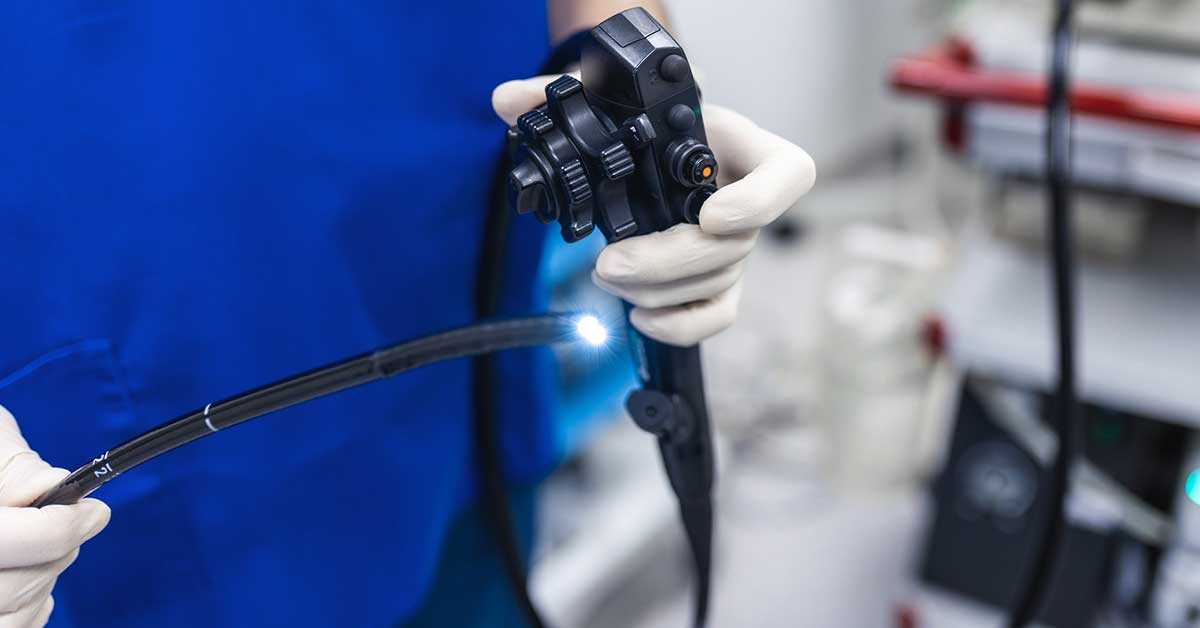The Surging Trend of Young-Onset Colon Cancer: 5 Things Every Millennial Needs to Know
5 Things Every Millennial Needs to Know
In recent years, a concerning trend has emerged. Younger adults, generally late teens through early 20s, are increasingly being diagnosed with colon and colorectal cancer at an alarming rate. Overall, colon cancer is the fourth most common type of cancer, typically affecting older adults. But colon cancer now more frequently affects individuals in their 20s, 30s, and 40s. For millennials, the diagnosis of colon cancer among this young adult age range raises concerns about long-term health. We’ve uncovered the top five things every millennial needs to know in this easy-to-digest guide.

1. What Is colon cancer?
Colon cancer – also known as colorectal cancer – is a disease in which malignant (cancer) cells form in the tissues of the colon. The colon is the main part of the large intestine and is about five feet long. Your body absorbs nutrients and removes waste through this crucial part of the digestive system.
Early symptoms of colon cancer include a change in bowel habits including diarrhea, constipation and blood in the stool. In most cases, colon cancer feels like the bowel didn’t empty after a bowel movement. You may also experience unexpected weight loss, frequent gas pains or vomiting.
The majority of colon cancers originate from tiny growths known as polyps in the colon and rectum lining. These abnormal growths sometimes grow from a stalk within the colon. Some types of polyps gradually evolve into cancer over time.
2. Why are millennials at higher risk?
The exact reasons behind the increase of colorectal cancer in young individuals remain unclear. However, doctors believe several lifestyle factors are linked to the disease. These include sedentary behavior, being overweight or obese, smoking, excessive alcohol consumption and a poor diet. Additionally, individuals with a family history of colorectal cancer or polyps face a higher risk of developing the disease. The risk also increases for those with gastrointestinal issues and conditions like irritable bowel syndrome.
3. Gut health impacts colon health
The gut microbiome is like a busy city of tiny living things in our digestive system. It keeps our intestines balanced and our immune system strong. But when things are off balance, it can cause problems like inflammation in our digestive tract and changes in how our bodies work. These issues can cause colon cancer.

Recent research shows a correlation between the consumption of processed or red meat and the development of colon cancer. Eating processed meats and red meats regularly, like bacon, sausage, hot dogs, beef, pork and lamb, can increase your chances of getting colon cancer. These meats have lots of saturated fats and heme iron. Grilling or frying these meats at high temperatures might create substances in the colon that could cause cancer.
The American Institute for Cancer Research (AICR) recommends at least 30 grams of fiber per day, as research shows that diets higher in fiber reduce the risk of colorectal cancer.
4. Family history of colon cancer? Start screenings early
Knowing your family’s health history is crucial for identifying potential risks for all types of cancer. A helpful tip is to keep track of your mother’s and father’s sides of the family and update your doctor if anything changes. Did you know one in three people who develop colorectal cancer also have other family members who were diagnosed with the disease?
Contact Us
The American Cancer Society suggests that most average-risk individuals should start colon cancer screenings at age 45. However, if you have a close family member who has had colon, rectal or colorectal cancer, it’s important to talk to your doctor to determine when screening should begin for you.
A colonoscopy is the most well-known colorectal cancer screening. A colonoscopy is a procedure to look inside the rectum and colon for polyps, abnormal areas or cancer. Other tests such as a biopsy or stool sample may also be necessary.
Other types of colon cancer screenings include a family health history review, a digital rectal exam and even various types of stool tests.
Cologuard®, an at-home colon cancer screening test for adults 45+, is the only noninvasive colon cancer test that can detect both altered DNA and blood in the stool. This screening tool is only recommended for those at average risk.
For more information about your risk and screenings, please visit our Colorectal page.
5. Colorectal cancer is among the most preventable types of cancer
As mentioned above, colon cancer frequently starts with the forming of polyps. Having your doctor detect and remove precancerous polyps can effectively reduce the chance of colon cancer.
Another way to lower your risk of colon cancer is to make healthier lifestyle choices and positive habits. These include maintaining a balanced diet rich in fruits, vegetables and whole grains. You should also limit red meats and processed meat consumption. Another lifestyle habit is to stay physically active, avoid tobacco products and limit alcohol intake.
Taking charge of colon cancer risk
As millennials embrace healthier habits and proactive healthcare, it’s essential to stay informed about cancer risks and preventive measures. Prevention starts with maintaining a balanced diet, staying physically active and keeping regular check-ups with healthcare providers. With these tips, millennials can take charge of their health and reduce the likelihood of colon cancer.
If you are seeking help, Florida Cancer Specialists & Research Institute experts provide treatments for colon, rectal and colorectal cancers.





Comments